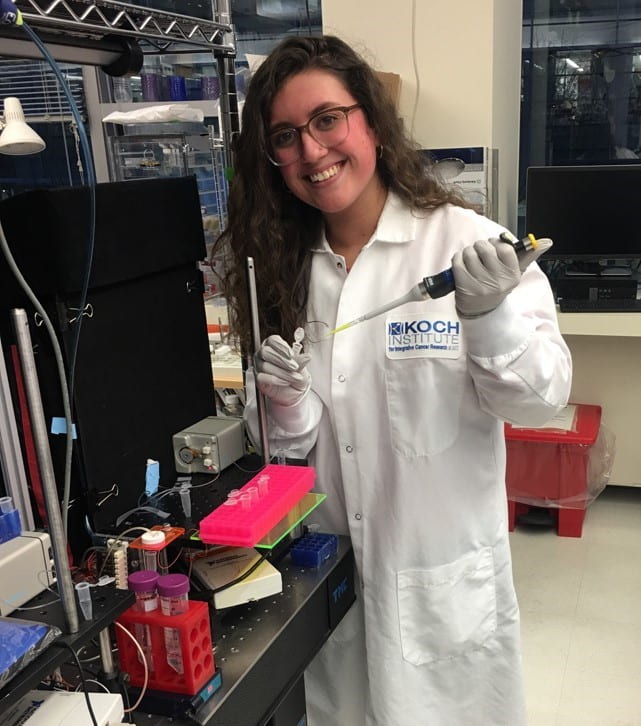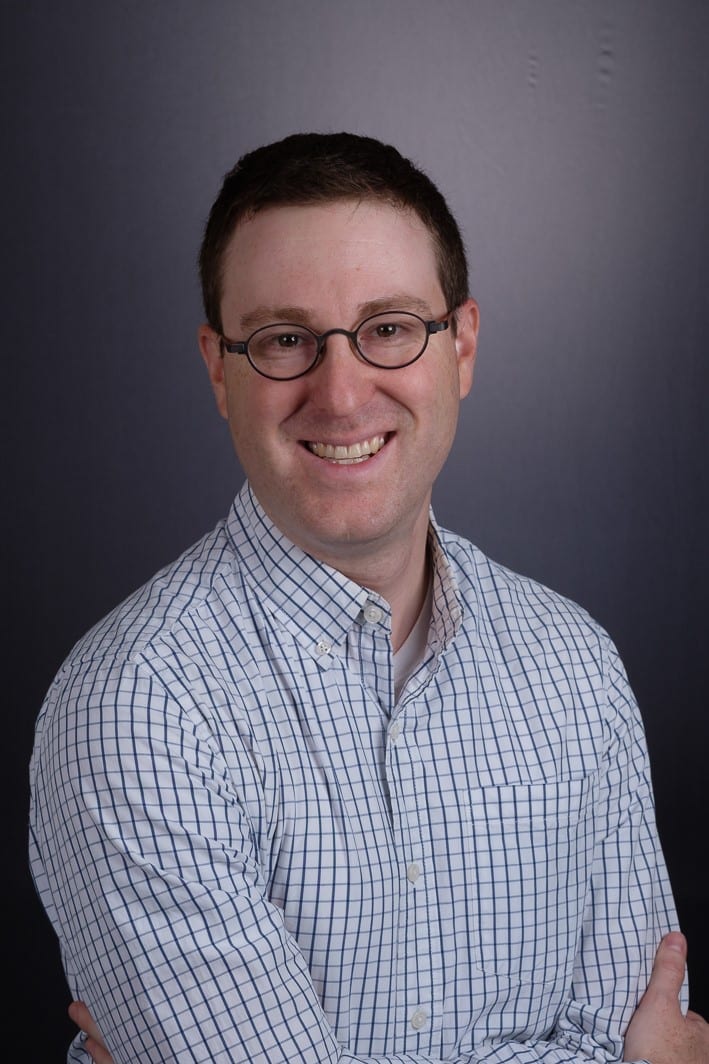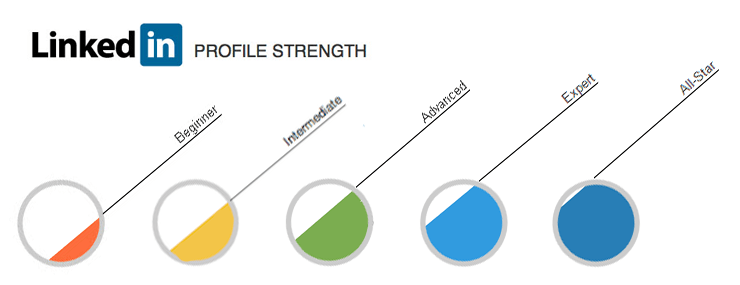By: Kelsey Degouveia
Kelsey is a recent Wentworth graduate of the Biomedical Engineering program with a minor in Biology. Looking back on her time at Wentworth, she shared with us about her very first co-op experience:
- Tell us about your co-op at Wyss Institute:
My first co-op was at the Wyss Institute for Biologically Inspired Engineering at Harvard University. I got to work side by side with a graduate student in the Ingber Lab studying metastasis of non-small cell lung cancer in microfluidic devices. As a Research Associate, I helped a lot with imaging, data analysis, and pharmaceutical comparing chemotherapy with novel treatment drugs. For my sophomore optional co-op, junior year co-op and senior year co-op I was a Research Associate in the Manalis Lab at the Koch Institute at MIT. During my time at MIT, I have had the opportunity to study circulating tumor cells (CTCs) with an optofluidic platform, in real-time, from a small cell lung cancer mouse model. I am involved in the fabrication of microfluidic devices and supplies, maintaining and handling our mouse colony and analysis of tumors cells collected. I have also had the opportunity to explore independent projects using deterministic lateral displacement (DLD) devices and suspended microchannel resonator (SMR) to investigate size separation and growth of CTCs.
- Why were you interested in completing your co-op in the role?
I was interested in joining a research lab because I was curious about medicine and thought I wanted to solve the mysteries of cancer and other diseases. Ultimately research has helped me find my passion for medicine.
- While on co-op, what project were you a part of, or something that you worked on, that has inspired you?
I think being a part of a team that is using optics and microfluidics to study biological questions has been so inspiring because it is the perfect balance of my interest in science and education in engineering. The system has been used in so many different collaborations and has allowed me to meet many great researchers and learn about different fields of cancer research. The first project I worked on in the lab, that focused on longitudinal measurements of our SCLC model led to my first publication in the Proceedings of the National Academy of Sciences of the United States of America (PNAS).
- How did you decide you wanted to pursue med-school?
During my first year at Wentworth, I thought research would be the perfect avenue for me to discover the unknown of different disease like cancer and Alzheimer’s disease, but I ultimately realized, after a few years in research labs, that I wanted to help people now, in the moment, and not just work towards a cure for the future.
- What resources have you found helpful in your application and search process?
Colleges with pre-med tracks have online resources posted for their pre-med students along with helpful information provided by the AAMC (Association of American Medical Colleges) on medical school requirements and virtual medical school fairs that let you chat with admission representatives from schools all over the country. Surprisingly, Reddit had a ton of helpful information on people’s study tips for the MCAT and people talking about their pre-med journey.
- What is the application/search process like?
The application process is very interesting because each school is unique but great in their own way. I think that for me it has been helpful to make a list of the things that I want in my medical school experience and searching for schools that match that criteria, like a school with great opportunities to continue doing research.
- What advice do you have for students interested in pursuing med-school?
I think the most helpful thing is to get a head start on communicating with physicians, and other pre-med/medical school student older than you. Developing a relationship with mentor is a fantastic resource for advice, a way to build your network, and someone who can help you understand a very long and difficult process.
Thank you for sharing your experience with us, Kelsey! Be on the lookout for our next co-op feature. If you would like to share your co-op experience (positive or not-as-expected), or have any questions about the co-op process, please email us at coopsandcareers@wit.edu.
As always, to make an appointment with your Co-op + Career Advisor call the front desk at 617.989.4101 or stop by the CO-OPS + CAREERS Office.
Fall 2019 Drop-In Hours: Monday, Tuesday and Wednesday 1:30pm – 4:00pm while classes are in session.






 By: Lauren Creamer
By: Lauren Creamer